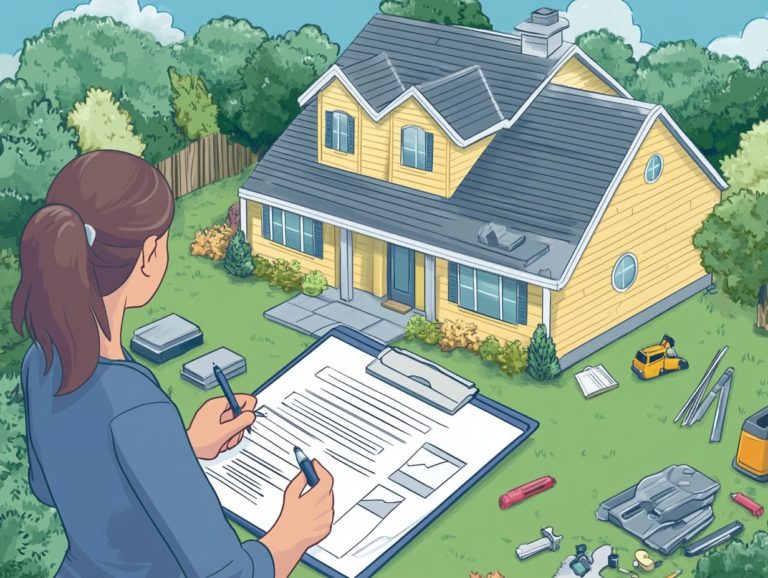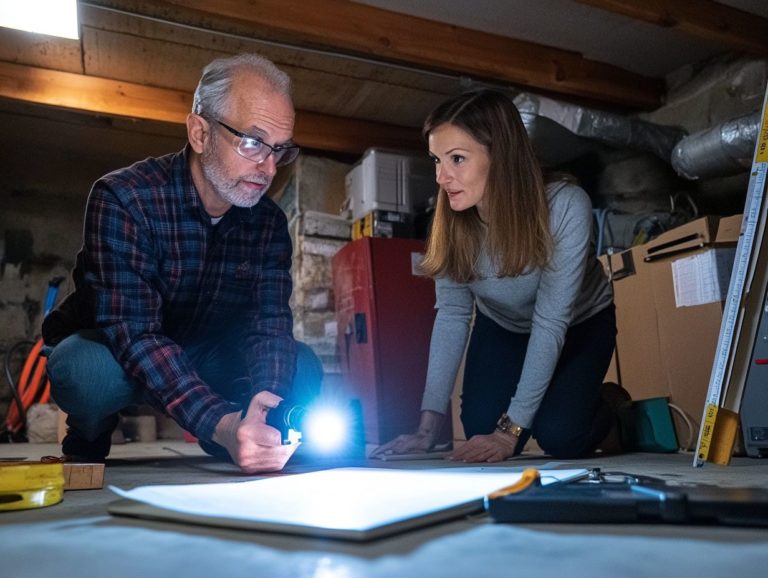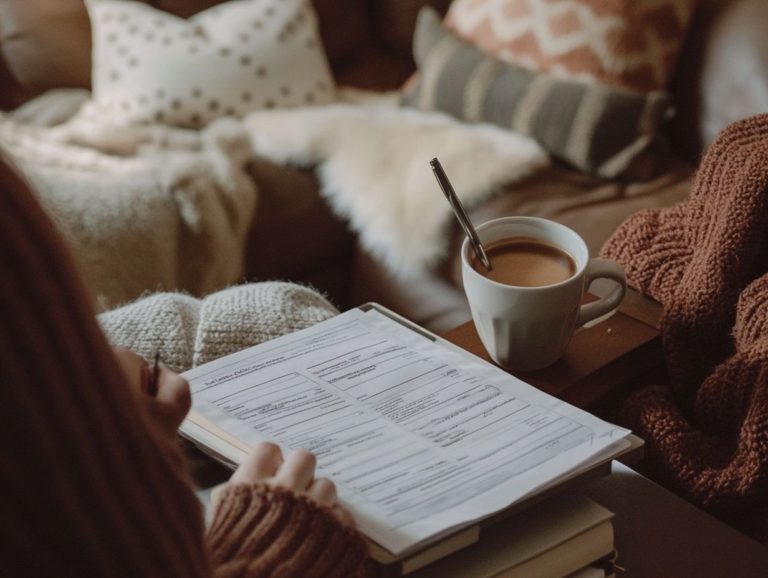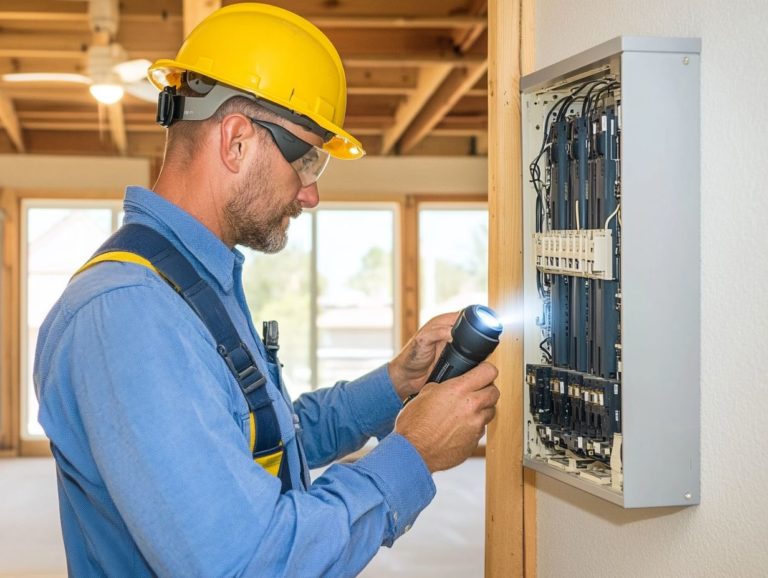How to Choose the Right Inspector for Your Home
When buying a home, a comprehensive inspection can be the pivotal factor that transforms your dream into reality or leads you into a financial quagmire.
Grasping the significance of home inspections is essential for any prospective buyer. This article delves into what home inspections involve, the key qualities you should look for in a home inspector, and the crucial questions to pose before making your selection.
It also covers how to locate a trustworthy inspector who can help protect your investment. Whether you re a first-time buyer or a seasoned homeowner, this guide arms you with the insights necessary to make informed decisions.
Contents
Key Takeaways:
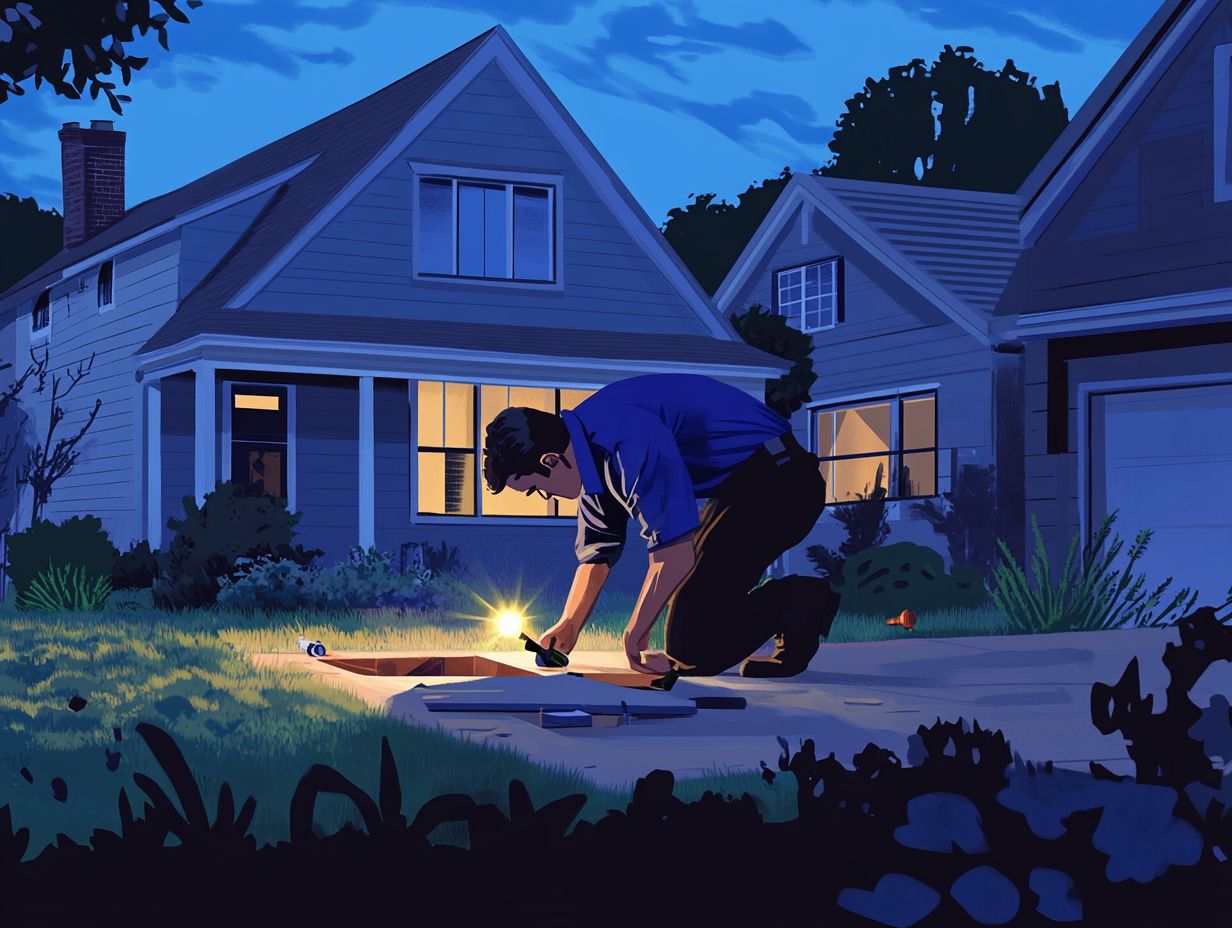
A home inspection is crucial in identifying potential issues in a property, helping buyers make informed decisions.
When choosing a home inspector, consider their experience, credentials, and thoroughness. It’s also essential to understand how to choose the right inspector for your needs, as good communication skills are important for a smooth inspection process.
Ask about the inspector’s inclusions, estimated duration, and if you can attend. To ensure you find the best fit, learn how to find reliable home inspection services through referrals, online reviews, and interviewing multiple candidates.
Why Home Inspections are Important
Home inspections are vital to the home buying journey, offering you essential insights into a property’s condition that can shield you from unexpected expenses and safety risks.
A comprehensive home inspection uncovers potential structural concerns, mechanical issues, and even hidden troubles like pest infestations and plumbing failures, all of which can affect a home’s value.
By recognizing the significance of these inspections, you become an informed buyer, ready to make sound decisions that protect your investment and enhance your homebuyer protection.
Understanding the Purpose of a Home Inspection
The purpose of a home inspection is to provide you, the potential homebuyer, with a thorough assessment of a property. This ensures you are fully aware of any existing issues that could influence your decision to purchase.
This inspection digs deep, covering everything from minor surface imperfections to significant hidden concerns that might elude notice during a casual walk-through. Certified home inspectors are inspectors trained and certified to assess home conditions; they bring the expertise and tools needed to identify potential red flags like issues with the building’s structure, wiring, or plumbing.
Once the inspection is complete, you’ll receive a detailed report that acts as an invaluable resource, outlining any identified problems and necessary repairs. Such insights empower you to make informed decisions, whether that means negotiating repairs with the seller or even deciding to walk away if the issues are too daunting.
This process protects your investment and ensures your peace of mind.
Qualities to Look for in a Home Inspector
When you’re selecting a home inspector, it’s crucial to focus on several key qualities that guarantee a comprehensive and dependable inspection. For guidance, refer to this how to select a home inspector for your needs. This careful choice empowers you.
A certified home inspector should not only have the necessary experience and credentials but also embody a commitment to ethical standards. Equally important are their communication skills; they must be able to clearly articulate their findings, fostering trust and transparency as you navigate the inspection journey.
Experience and Credentials
Experience and credentials are essential factors to consider when selecting a home inspector, especially when you want to know how to compare home inspection services, as they significantly impact the quality and reliability of the inspection process.
Opting for a home inspector with credible certifications, such as those from the American Society of Home Inspectors or the International Association of Certified Home Inspectors, is vital for ensuring a property evaluation that is both thorough and insightful. These certifications signal that the inspector has undergone rigorous training and adheres to industry standards.
A seasoned inspector s familiarity with various inspection criteria enhances their ability to deliver a comprehensive analysis, empowering you to make informed decisions and protecting your investments for years to come.
Thoroughness and Attention to Detail
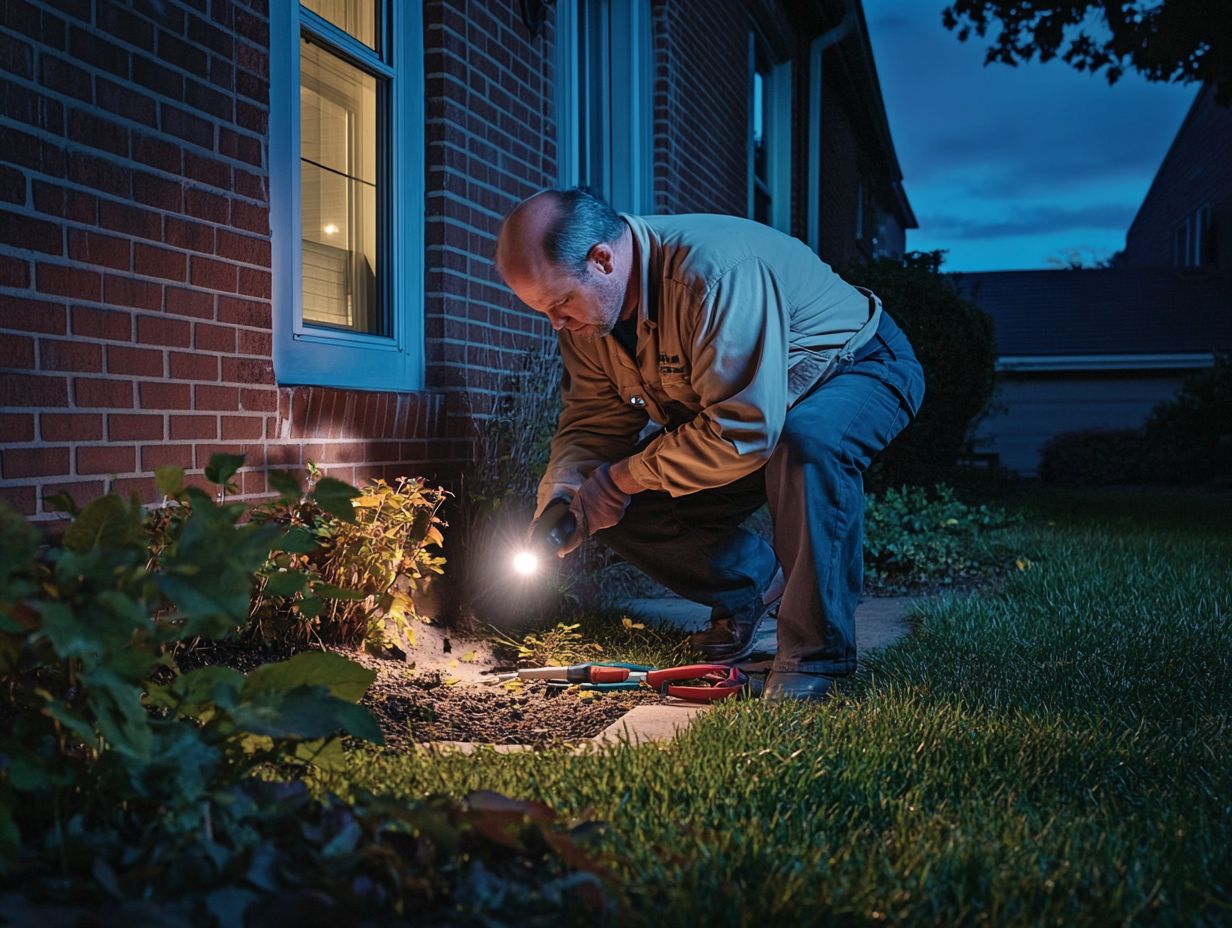
A thorough home inspection requires your careful attention to detail. This ensures that every facet of the property is evaluated to uncover any structural or mechanical concerns.
This detailed inspection report becomes an invaluable tool for you as a prospective homebuyer, showing visible issues and hidden problems that may need further investigation.
Thoroughness is crucial as it empowers you with the knowledge needed to make informed decisions and address potential concerns before finalizing your purchase.
The heightened awareness of maintenance recommendations included in the report aids you in proactive home care, contributing to long-term property value and safety.
Ultimately, this rigorous inspection process enhances your protection as a buyer. It reduces the risk of costly repairs and ensures a safer investment.
Communication Skills
Effective communication skills are essential for you as a home inspector. You need to convey complex findings in a way that homebuyers can easily understand, ensuring they’re fully aware of any potential concerns.
A well-crafted inspection report does more than just inform; it empowers your clients, allowing them to make educated decisions about a property. When you articulate your insights clearly, you foster transparency, which is crucial for protecting the interests of homebuyers.
This clarity builds trust, strengthens relationships, and can significantly influence future client reviews. Satisfied clients are much more likely to share positive feedback, enhancing your reputation within the professional network.
Trust and communication are the cornerstones of your successful inspection business, creating far-reaching implications for your career growth.
Questions to Ask a Potential Home Inspector
When you interview a potential home inspector, it’s crucial to ask the right questions. This approach will help you understand how to find a qualified home inspector and gain a comprehensive understanding of the inspection process and the range of services they offer.
What is Included in the Inspection?
Understanding what s included in a home inspection is vital for you as a homebuyer. It significantly impacts your decision-making process.
A thorough inspection typically covers a variety of components, including the strength of the building, roofing conditions, plumbing, electrical systems, and Heating, Ventilation, and Air Conditioning (HVAC) performance. By carefully examining these aspects, you can uncover existing issues that might lead to costly repairs in the future.
The inspection report becomes an essential document for you, offering a detailed overview of the property s condition while highlighting areas of concern.
Additionally, various inspection specialties, such as pest or mold inspections, can further enrich your evaluation. This ensures you have a comprehensive understanding of your prospective home and any potential challenges it may present.
How Long Will the Inspection Take?
The length of a home inspection can vary based on the property’s size and complexity, as well as how thorough the inspector is in their evaluation.
Generally, you can expect a standard inspection to last anywhere from two to four hours. However, if the home is particularly old or requires extra attention, this timeframe might stretch a bit.
For instance, if the property boasts extensive renovations or unique features, it will likely warrant more scrutiny, which can prolong the process.
Additionally, you might encounter specific inspection fees if specialized services, like radon testing or pest inspections, are recommended for a comprehensive evaluation.
While it may seem like a considerable time investment, this thorough approach pays off, providing you with invaluable insights about your potential investment.
Can I Attend the Inspection?
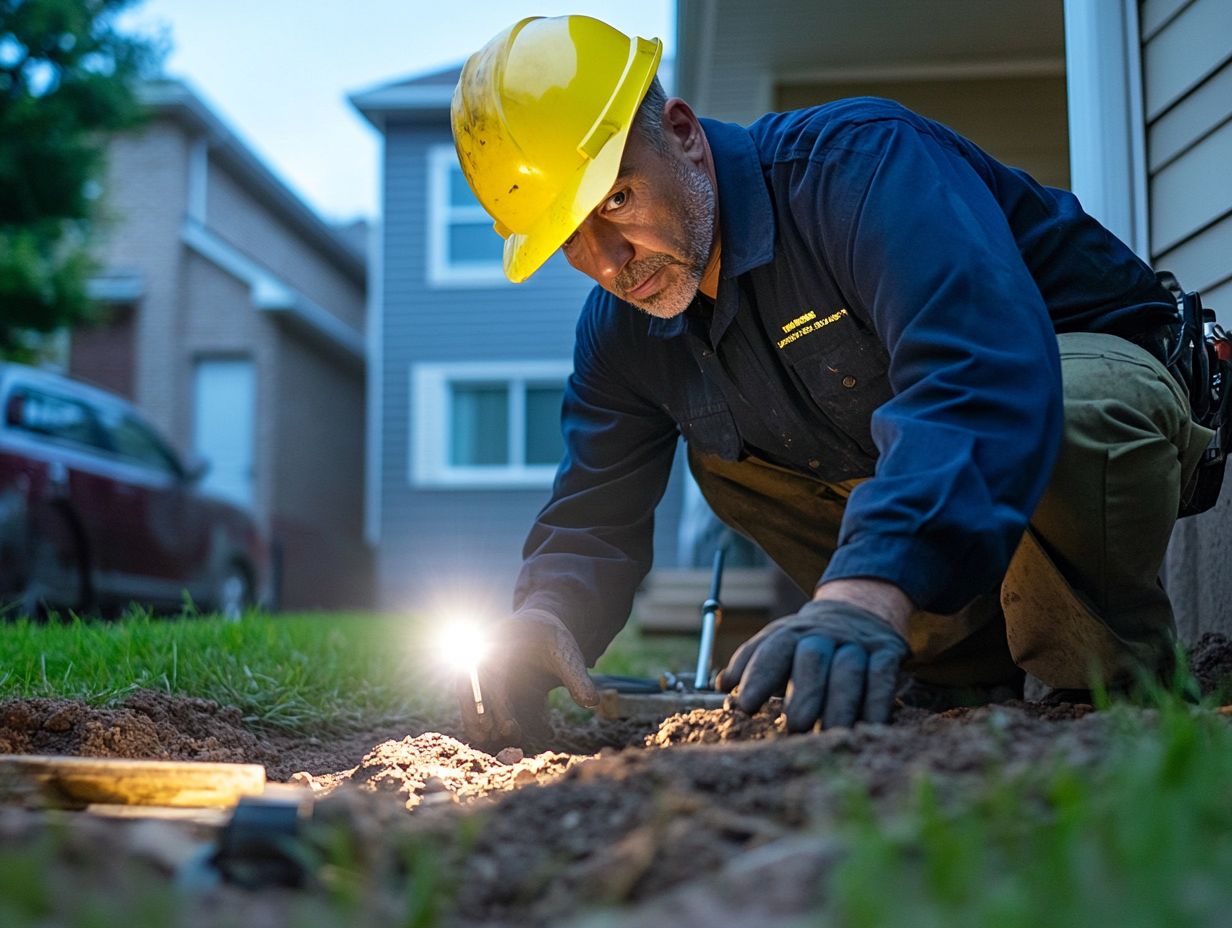
Attending the home inspection is highly advisable for you as a homebuyer. It provides the perfect opportunity to ask questions on the spot and gain a deeper understanding of the property s condition.
Being present during this important phase fosters direct communication with the inspector and gives you the power to familiarize yourself with the home’s intricacies. This experience can uncover issues that may not be obvious.
Engaging with the inspector allows for a meaningful dialogue, giving you the chance to clarify any uncertainties and acquire valuable insights into maintenance concerns or safety hazards.
Getting involved boosts your awareness and helps you make smarter decisions!
Ultimately, your involvement strengthens your protection, enabling you to make informed decisions about your investment and future living conditions.
How to Find a Reputable Home Inspector
Securing a reputable home inspector is crucial for you as a homebuyer. This choice profoundly affects the inspection process and can shape your overall buying experience in significant ways, making it important to understand how to choose the right inspector for your home.
Referrals and Recommendations
Referrals and recommendations stand out as some of the most dependable methods for finding a qualified home inspector, especially when they come from trusted sources like real estate agents and satisfied clients.
By asking real estate agents, you gain access to a treasure trove of knowledge about inspectors who not only excel in their field but also boast a solid track record of professionalism. These agents frequently collaborate with various inspectors and can give tailored recommendations to align with your specific needs, ensuring you receive guidance from reputable professionals. This trust boosts your protection as a homebuyer, increasing the likelihood that you’ll select inspectors recognized for their thoroughness and integrity.
Ultimately, this leads you to make more informed decisions throughout the home purchasing journey.
Online Reviews and Ratings
Online reviews and ratings are essential tools for you as a homebuyer, allowing you to evaluate the credibility of potential home inspectors.
By exploring feedback on platforms like the Better Business Bureau, you can glean insights into an inspector s work ethic, professionalism, and the overall satisfaction of previous clients.
These evaluations not only illuminate an inspector’s strengths and weaknesses but also offer a window into the types of issues that might arise during inspections. Consistent positive ratings often signal a reliable choice, while recurring complaints can raise red flags.
By analyzing these reviews, you arm yourself with the essential information needed to make informed decisions, ensuring that you select a competent and trustworthy professional for this crucial aspect of your home-buying journey.
Interviewing Multiple Inspectors
Interviewing multiple home inspectors is a wise strategy for you as a homebuyer, enabling you to compare services, costs, and overall professionalism before making that all-important final choice. Knowing how to spot a good home inspector can further enhance your decision-making process.
By engaging with various inspectors, you can obtain detailed quotes that clarify exactly what each inspection entails, whether it s a basic check or a comprehensive evaluation. This proactive approach gives you the power to assess each candidate’s qualifications and inspection styles, allowing you to align your specific requirements with their methodologies.
Ultimately, this careful vetting process not only fosters peace of mind but also significantly enhances your buyer protection. When you select an inspector tailored to your unique needs and standards, you increase the likelihood of uncovering critical insights about the property, ensuring that your investment is both sound and secure.
Watch this video for more tips on choosing the right home inspector.
Frequently Asked Questions
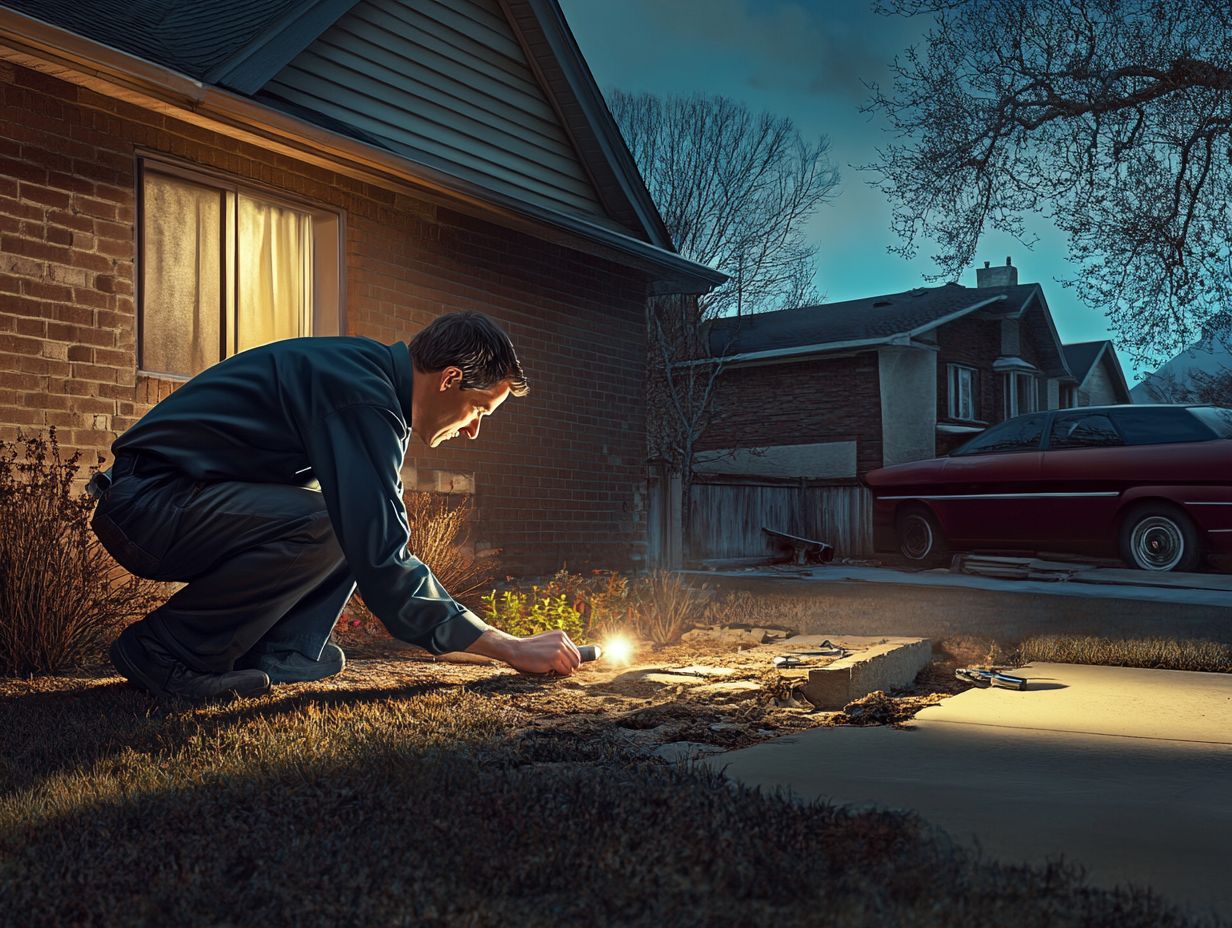
What should I look for in a home inspector?
When choosing a home inspector, it’s important to look for someone who is licensed, experienced, and knowledgeable about local building codes and regulations. For more guidance, consider reviewing how to choose the right inspector for your property. You should also check their references and reviews to ensure they have a good track record of providing thorough and accurate inspections.
Begin your journey to a safe and sound home today!
What qualifications should a home inspector have?
A home inspector must have a valid license or certification. They also need specialized training and experience in inspecting homes.
How do I know if a home inspector is reputable?
Check the inspector’s credentials and references. It’s also wise to consider how to choose the right real estate agent to ensure you have the best support throughout the process. Ask for proof of certification and contact previous clients to learn about their experiences.
Is price a good indicator of the quality of a home inspector?
Price can be a factor, but it shouldn t be the only one. A higher price doesn t guarantee better service, and a lower price doesn’t mean poor quality.
Should I attend the home inspection?
Yes, it s highly recommended to attend. This lets you ask questions and learn about the home s condition directly.
What if the home inspector misses something important?
If something is missed, you might file a complaint for a refund or compensation. Review all documents carefully before hiring to understand your rights.

